Fela Sowande (1905-1987) was a Nigerian musician and composer. He was born near Lagos and was the son of Emmanuel Sowande, a priest and pioneer of NIgerian church music. As a child, he sang in the choir of the Cathedral Church of Christ. He went to King’s College, Lagos where he studied African and European music. In 1934, he went to London to study European classical and popular music. He studied organ privately and later won several top prizes and became a Fellow of the Royal College of Organists. He composed the majority of his organ and symphonic music during this time. Much of his music just like what you will hear today is based on Nigerian folk melodies. I am playing only the last movement of this Prayer, but if you were to hear the entire piece, you would hear Nigerian, English and American influences in his writing. Later in life, he was recruited to the faculty of Kent State University in Ohio.
The text for the opening hymn for July 26th was written by Jane Parker Huber (1926-2008). She was born in Indiana and attended Wellesley College in Massachusetts. She was a faithful Presbyterian and emphasized peacemaking, justice, and inclusiveness in her work and hymn texts. She served on the committee for The Presbyterian Hymnal (1990), in which seven of her hymns appear.
She writes of today’s text, “The theme for the 1982 National Meeting of United Presbyterian Women was ‘Nevertheless…the Promise.’ The stage of the Hall of Music at Purdue University, second in size only to Radio City Music Hall, was to feature a vast rainbow by Corita Kent – six broad slashes of color, a hint of the enormity of God’s promised covenant, with two colors of the spectrum reversed as if to indicated the unexpectedness of God’s intervention into human life. When I learned of the theme and considered writing a hymn for the event, I realized I wanted music with a long, sweeping line that would illustrate the faithfulness of our covenant-keeping God. ‘Lobe den Herren’ seemed perfectly suited to the expanse and yet the urgency I wanted. On opening night at Purdue, the service began with the curtains closed. The more than five thousand people present sang this hymn for the first time, and as they came to the fourth stanza, ‘Break the sun’s rays into color, a rainbow around us,’ the stage curtains parted, revealing Sister Corita’s huge rainbow. It was a breathtaking moment.”
The composer of today’s offertory music, Michel Corrette (1707-1795), was a baroque composer born in Rouen, France. From 1737 to 1790 (when the Order of Malta was abolished by decree of the French National Assembly) Corrette was organist of the Église Sainte Marie du Temple (Church of the Enclosure, Knights Templar and Hospitaller) within the fortified stronghold of the Grand Prior of France – in which capacity he served Jean Philippe the Chevalier d’Orléans, Louis François de Bourbon, Prince of Conti (1749), and the new-born Louis Antoine, Duke d’Angoulême, the last Dauphin (1776). Between circa 1738 and 1762 (when the order was expelled by the Duke of Choiseul) Corrette was additionally organist at the nearby Église Saint-Paul-SaintLouis associated with the Jesuit College in rue St-Antoine (destined post-Revolution to become Napoléon’s elite Lycée Charlemagne). Corrette was one of the leading exponents of the late baroque style. He was a prolific composer writing ballets, suites, cantatas, and songs, but also a master player of many instruments. He wrote many method books for the violin, voice, flute, cello, and bassoon just to mention a few.

Recent Comments